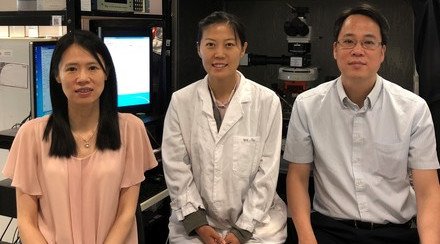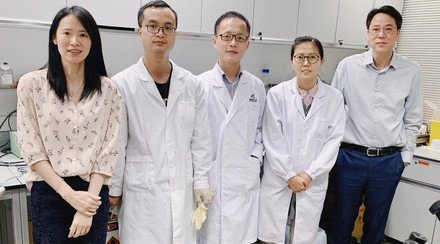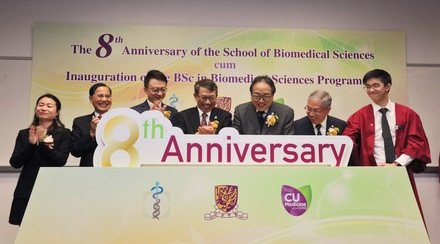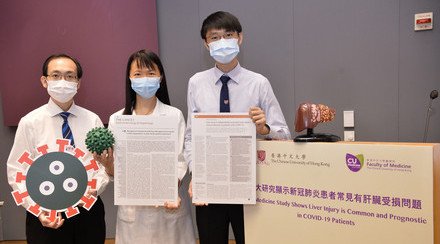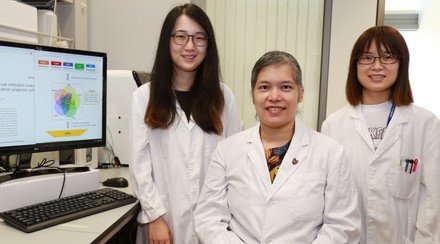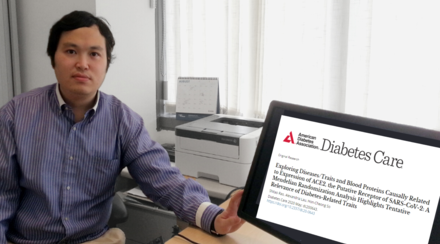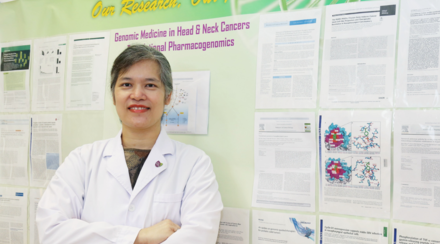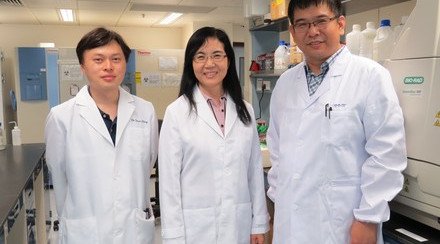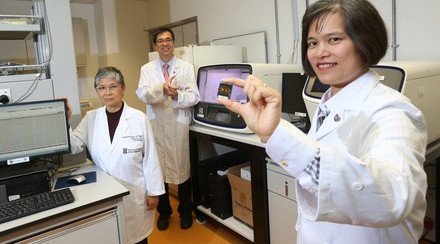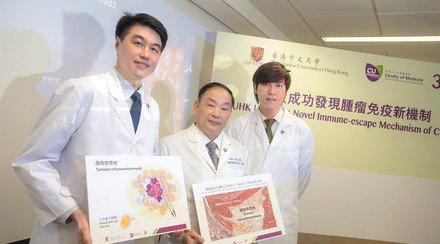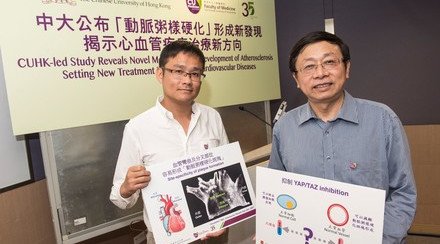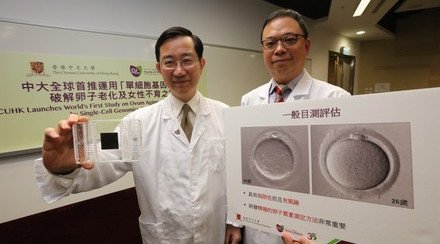CUHK Study Discovers an Essential Enzyme to Maintain Body Iron Homeostasis Deficiency Could Cause Excessive Iron Retention and Damage Major Organs
The School of Biomedical Sciences of the Faculty of Medicine at The Chinese University of Hong Kong (CUHK) has achieved a breakthrough in the mechanism of maintaining body iron homeostasis. A research team consisting of investigators from the School of Biomedical Sciences at CUHK and Fudan University discovered that experimental mice with a deficiency in the enzyme “cystathionine β-synthase (CBS)” displayed hemochromatosis-like symptoms, which means excess iron content in the serum and liver, along with damage to major organs. Researchers pointed out that CBS deficiency could interfere with the mechanism of red blood cell production and result in excessive iron retention. The study published in the international medical journal Hepatology may benefit patients suffering from hemochromatosis from unknown causes and provide new directions in diagnosis and treatment.
CBS deficiency suppressed production of red blood cells in experimental mice and abnormal surge of body iron observed
CBS is an enzyme produced by the liver and other organs. Congenital mutation in the CBS gene could lead to CBS deficiency, a rare hereditary disease that affects some metabolic functions. Patients not treated in infancy may have multisystem disorders such as intellectual disabilities, psychiatric disorders, arterial occlusions and osteoporosis.
This research revealed that CBS is also essential for body iron homeostasis. Researchers studied the iron content in the serum and tissues of experimental mice with normal CBS and experimental mice with CBS deficiency. The physiological and metabolic impact of CBS deficiency, including the interference on erythropoiesis, were studied.
Study results showed that CBS deficiency could lead to a significant decrease in the body weight of the experimental mice. Their iron level is also higher than those with normal CBS, leading to hemochromatosis-like symptoms like liver damage. Key findings are tabulated as below:
| Iron level | Experimental mice with CBS deficiency | Experimental mice with normal CBS |
| Serum (μg/dl) | 110 | 30 |
| Liver (μg/g) | 70 | 40 |
Further analysis showed that CBS deficiency could suppress erythropoiesis and lead to excessive iron retention, resulting in hemochromatosis-like symptoms. However, the condition could be partially reversed when the CBS expression in the affected mice was raised through experimental strategy.
Study results may lead to new directions in diagnosis and treatment for hemochromatosis
For hemochromatosis patients, excessive build-up of iron in the body often leads to cirrhosis and hence increases the risk of liver cancer.
Prof. Ya KE, Associate Professor of the School of Biomedical Sciences at the Faculty of Medicine and investigator of the Gerald Choa Neuroscience Centre at CUHK led the study. She stated, “Our study result showed that CBS is essential in the balancing of in vivo iron level and this may lead to new directions in the diagnosis and treatment for hemochromatosis patients with unknown causes.”
This study also enhances the understanding of the diseases related to CBS. CBS deficiency can also lead to intellectual disabilities, and other severe brain problems such as psychiatric or behavioural disorders. In contrast, an excess of CBS is commonly observed in patients with Down’s syndrome which could also be one of the pathogenic mechanisms.
Prof. Wing Ho YUNG, Professor of the School of Biomedical Sciences at the Faculty of Medicine and Director of the Gerald Choa Neuroscience Centre at CUHK said, “CBS misregulation brings numerous negative impacts to brain function but we have very limited knowledge in the underlying mechanism. Our Centre has initiated, and will continue, to investigate the key role of CBS in our nervous system.”
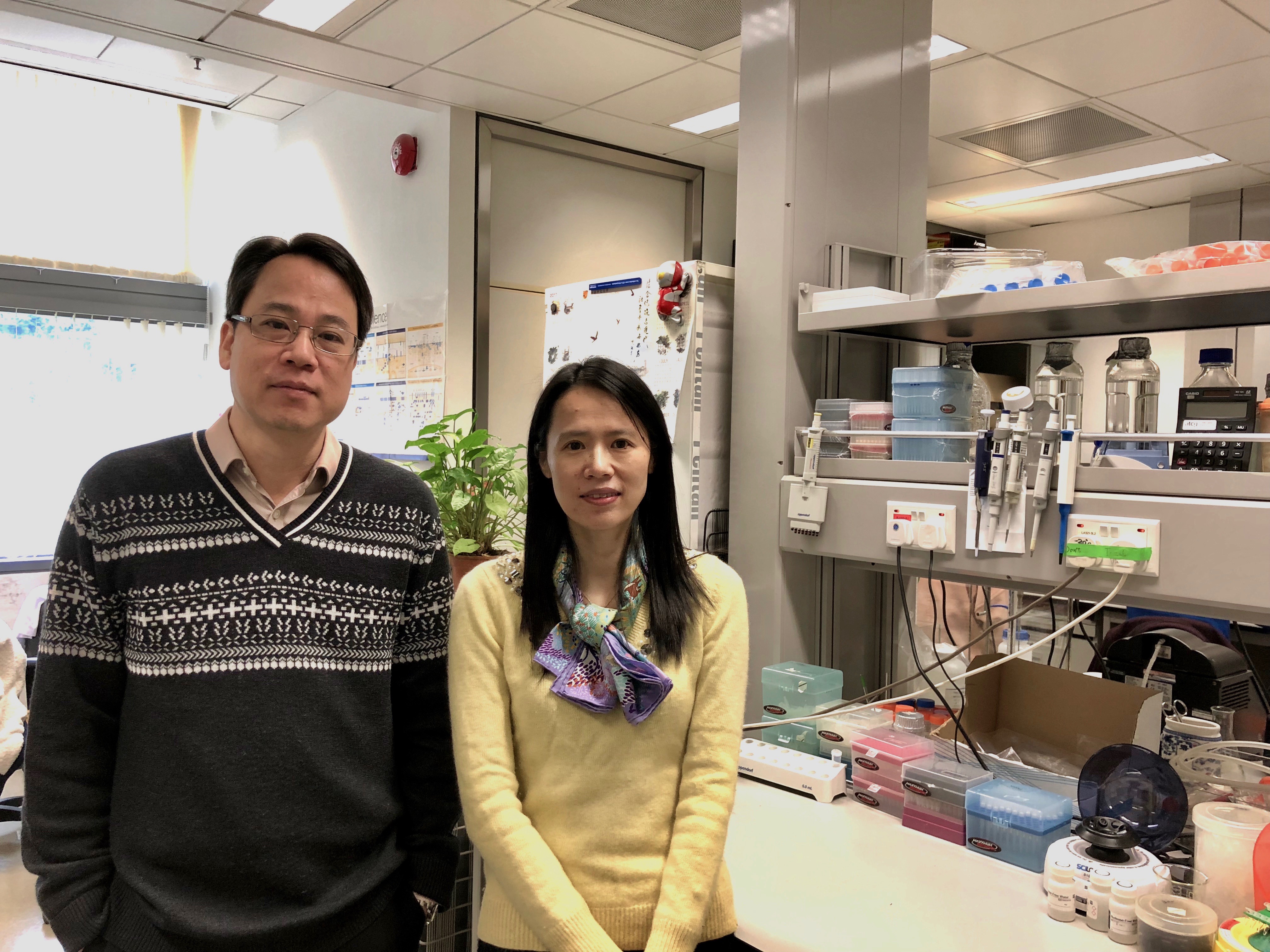
A study led by (right) Prof. Ya KE, Associate Professor of the School of Biomedical Sciences of the Faculty of Medicine at The Chinese University of Hong Kong, discovered that an enzyme called cystathionine β-synthase (CBS) is essential to maintain body iron homeostasis. The results may benefit patients suffering from hemochromatosis due to unknown causes and provide new directions for diagnosis and treatment. Featured on the left is co-investigator Prof. Wing Ho YUNG, Director of the Gerald Choa Neuroscience Centre.
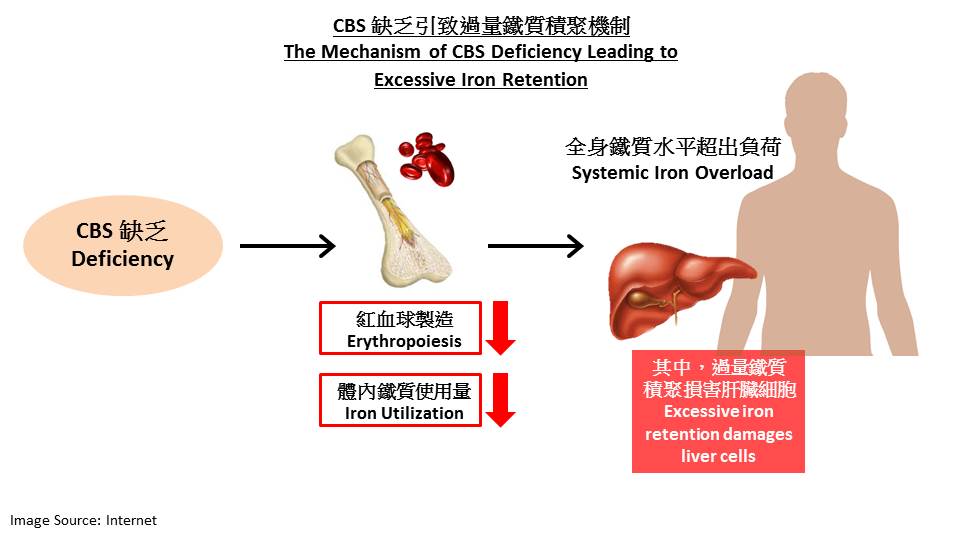
The mechanism of CBS deficiency leading to excessive iron retention


